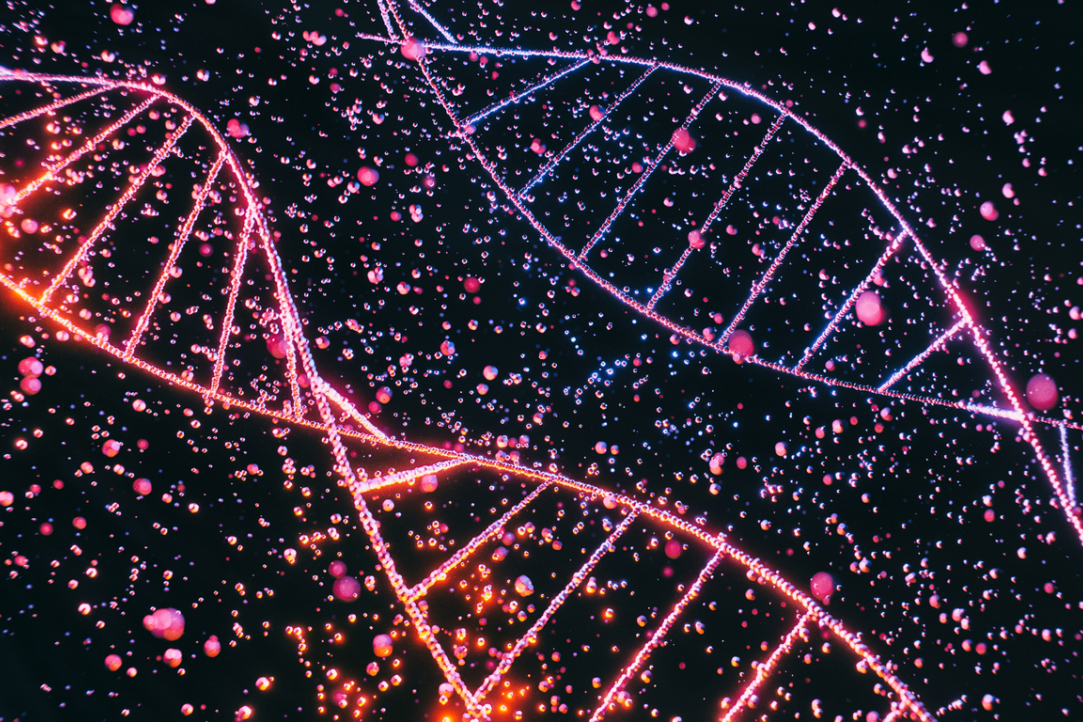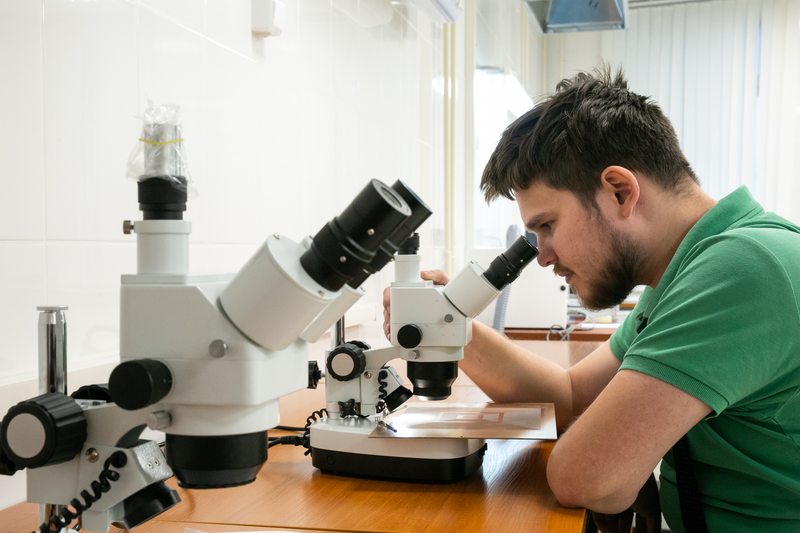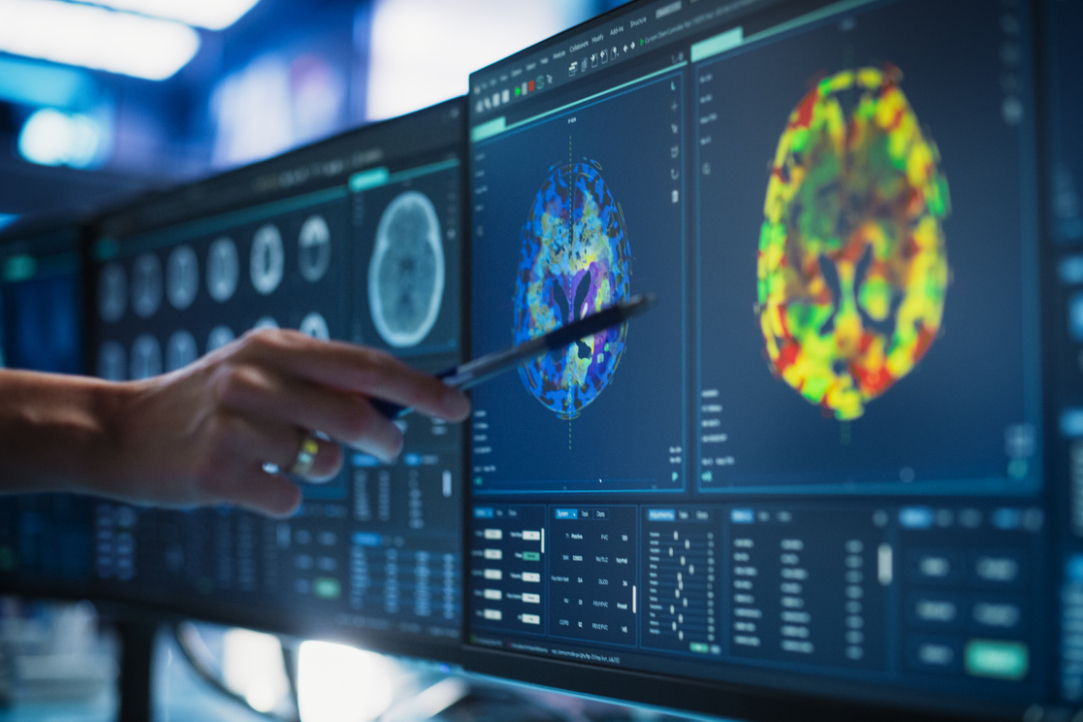
Scientists Propose Novel Theory on Origin of Genetic Code
Alan Herbert, Scientific Supervisor of the HSE International Laboratory of Bioinformatics, has put forward a new explanation for one of biology's enduring mysteries—the origin of the genetic code. According to his publication in Biology Letters, the contemporary genetic code may have originated from self-organising molecular complexes known as ‘tinkers.’ The author presents this novel hypothesis based on an analysis of secondary DNA structures using the AlphaFold 3 neural network.

More Children, More Happiness: HSE Experts Study Impact of Number of Children on Russians' Assessment of Happiness
Russians with children feel happier than those without children. At the same time, the number of children influences the assessment of happiness: the more children Russians have, the happier they feel. These conclusions were outlined inthe report ‘More Children, More Happiness: The Impact of the Number of Children on Russians’ Assessment of Happiness,’ presented at the XXV Yasin (April) International Academic Conference on Economic and Social Development, held on April 15–18 at HSE University. The study was conducted by Elena Churilova, Senior Research Fellow, and Dmitry Jdanov, Chief Research Fellowat HSE International Laboratory for Population and Health.

See, Feel, and Understand: HSE Researchers to Explore Mechanisms of Movement Perception in Autism
Scientists at the HSE Cognitive Health and Intelligence Centre have won a grant from the Russian Science Foundation (RSF) to investigate the mechanisms of visual motion perception in autism. The researchers will design an experimental paradigm to explore the relationship between visual attention and motor skills in individuals with autism spectrum disorders. This will provide insight into the neurocognitive mechanisms underlying social interaction difficulties in autism and help identify strategies for compensating for them.

Scholars Disprove Existence of ‘Crisis of Trust’ in Science
An international team of researchers, including specialists from HSE University, has conducted a large-scale survey in 68 countries on the subject of trust in science. In most countries, people continue to highly value the work of scientists and want to see them take a more active role in public life. The results have been published in Nature Human Behaviour.

Education System Reforms Led to Better University Performance, HSE Researchers Find
A study by researchers at the HSE Faculty of Economic Sciences and the Institute of Education have found that the number of academic papers published by research universities in international journals has tripled in the past eight years. Additionally, universities have developed more distinct specialisations. Thus, sectoral universities specialising in medical, pedagogical, technical, and other fields are twice as likely to admit students to target places. The study has been published in Vocation, Technology & Education.

Winners of New RSF Awards Include Projects from Four Campuses of HSE University
The Russian Science Foundation has completed its review of projects submitted for grants to support fundamental and exploratory research by teams, as well as 2022 grant winners applying for project extensions. In addition, interdisciplinary projects for fundamental and exploratory research awarded under the Presidential funding programme have been announced. Projects awarded under each of the three categories include submissions from researchers at all four campuses of HSE University.

Scientists Record GRB 221009A, the Brightest Gamma-Ray Burst in Cosmic History
A team of scientists from 17 countries, including physicists from HSE University, analysed early photometric and spectroscopic data of GRB 221009A, the brightest gamma-ray burst ever recorded. The data was obtained at the Sayan Observatory one hour and 15 minutes after the emission was registered. The researchers detected photons with an energy of 18 teraelectronvolts (TeV). Theoretically, such high-energy particles should not reach Earth, but data analysis has confirmed that they can. The results challenge the theory of gamma radiation absorption and may point to unknown physical processes. The study has been published in Astronomy & Astrophysics.
%20%D0%B1%D0%B5%D0%B7%20%D0%BE%D1%87%D0%B8%D1%81%D1%82%D0%BA%D0%B8%20%E2%80%94%20%D0%BA%D0%BE%D0%BF%D0%B8%D1%8F.jpg)
Chemists Simplify Synthesis of Drugs Involving Amide Groups
Chemists from HSE University and the Nesmeyanov Institute of Organoelement Compounds of the Russian Academy of Sciences (INEOS RAS) have developed a new method for synthesising amides, essential compounds in drug production. Using a ruthenium catalyst and carbon monoxide under precisely controlled reaction conditions, they successfully obtained the target product without by-products or complex purification steps. The method has already been tested for synthesising a key component of Vorinostat, a drug used to treat T-cell lymphoma. This approach could lower the cost of the drug by orders of magnitude. The paper has been published in the Journal of Catalysis. The study was supported by the Russian Science Foundation.

Scientists Examine Neurobiology of Pragmatic Reasoning
An international team including scientists from HSE University has investigated the brain's ability to comprehend hidden meanings in spoken messages. Using fMRI, the researchers found that unambiguous meanings activate brain regions involved in decision-making, whereas processing complex and ambiguous utterances engages regions responsible for analysing context and the speaker's intentions. The more complex the task, the greater the interaction between these regions, enabling the brain to decipher the meaning. The study has been published in NeuroImage.

Scientists Present New Solution to Imbalanced Learning Problem
Specialists at the HSE Faculty of Computer Science and Sber AI Lab have developed a geometric oversampling technique known as Simplicial SMOTE. Tests on various datasets have shown that it significantly improves classification performance. This technique is particularly valuable in scenarios where rare cases are crucial, such as fraud detection or the diagnosis of rare diseases. The study's results are available on ArXiv.org, an open-access archive, and will be presented at the International Conference on Knowledge Discovery and Data Mining (KDD) in summer 2025 in Toronto, Canada.


Registration deadline - April 30